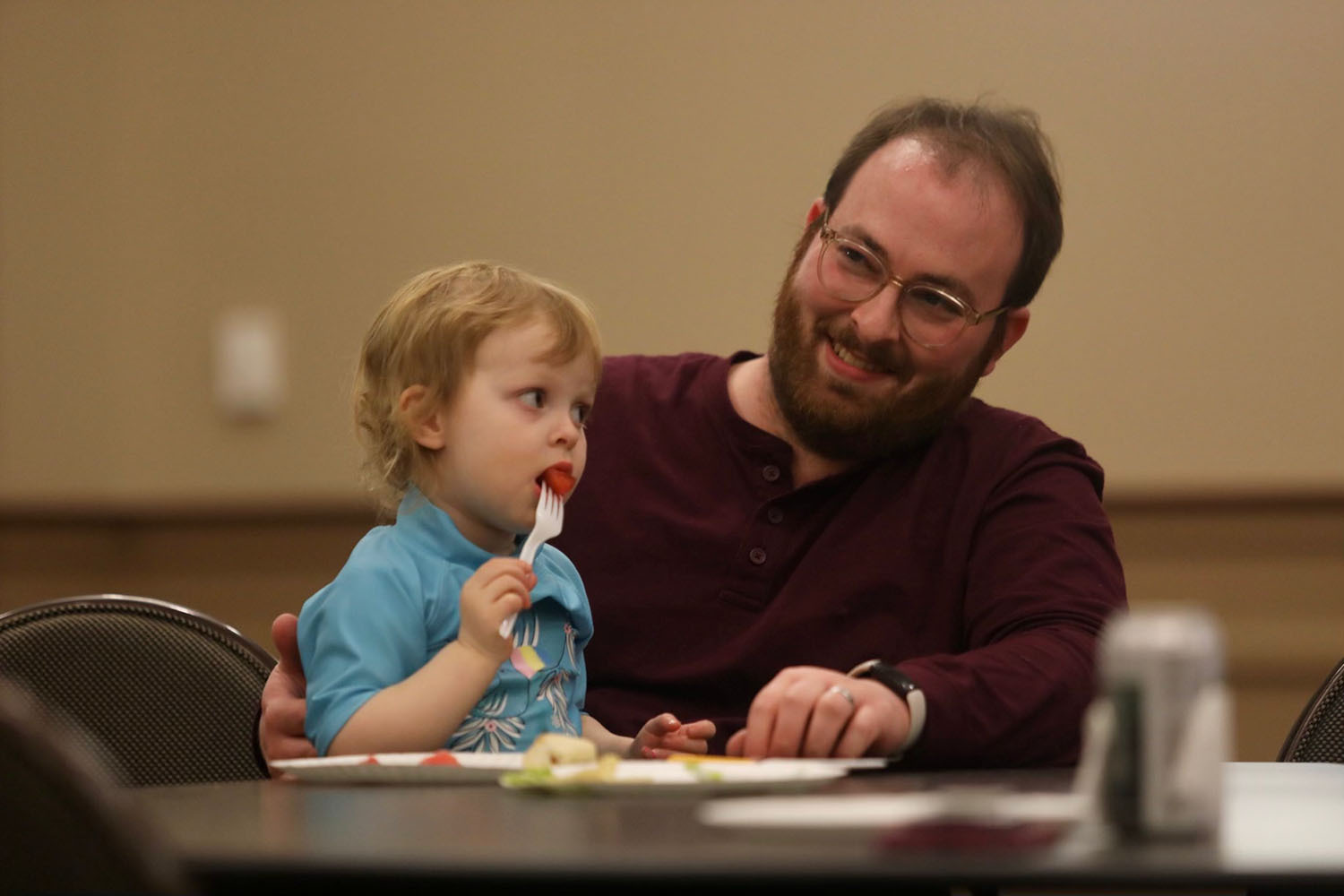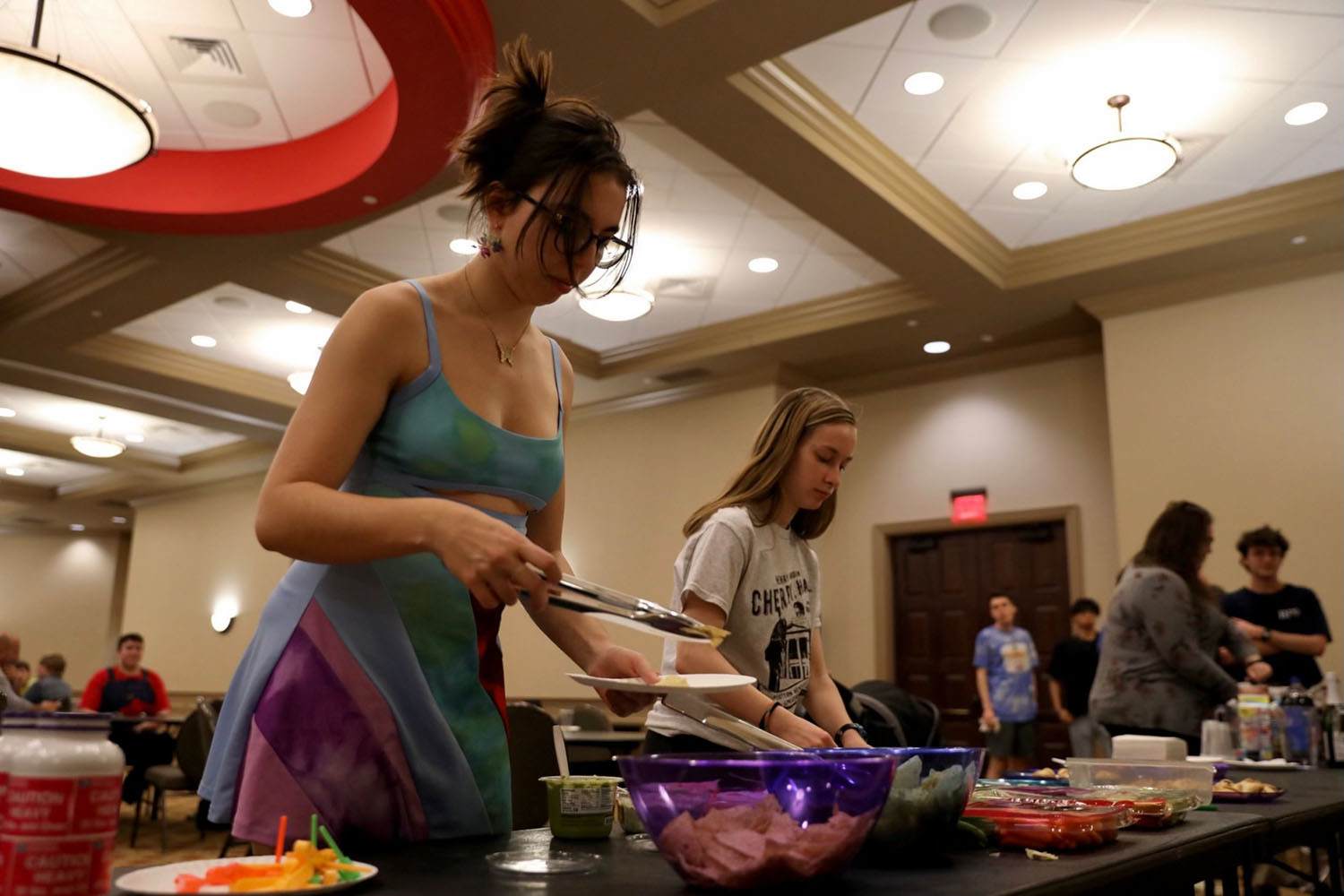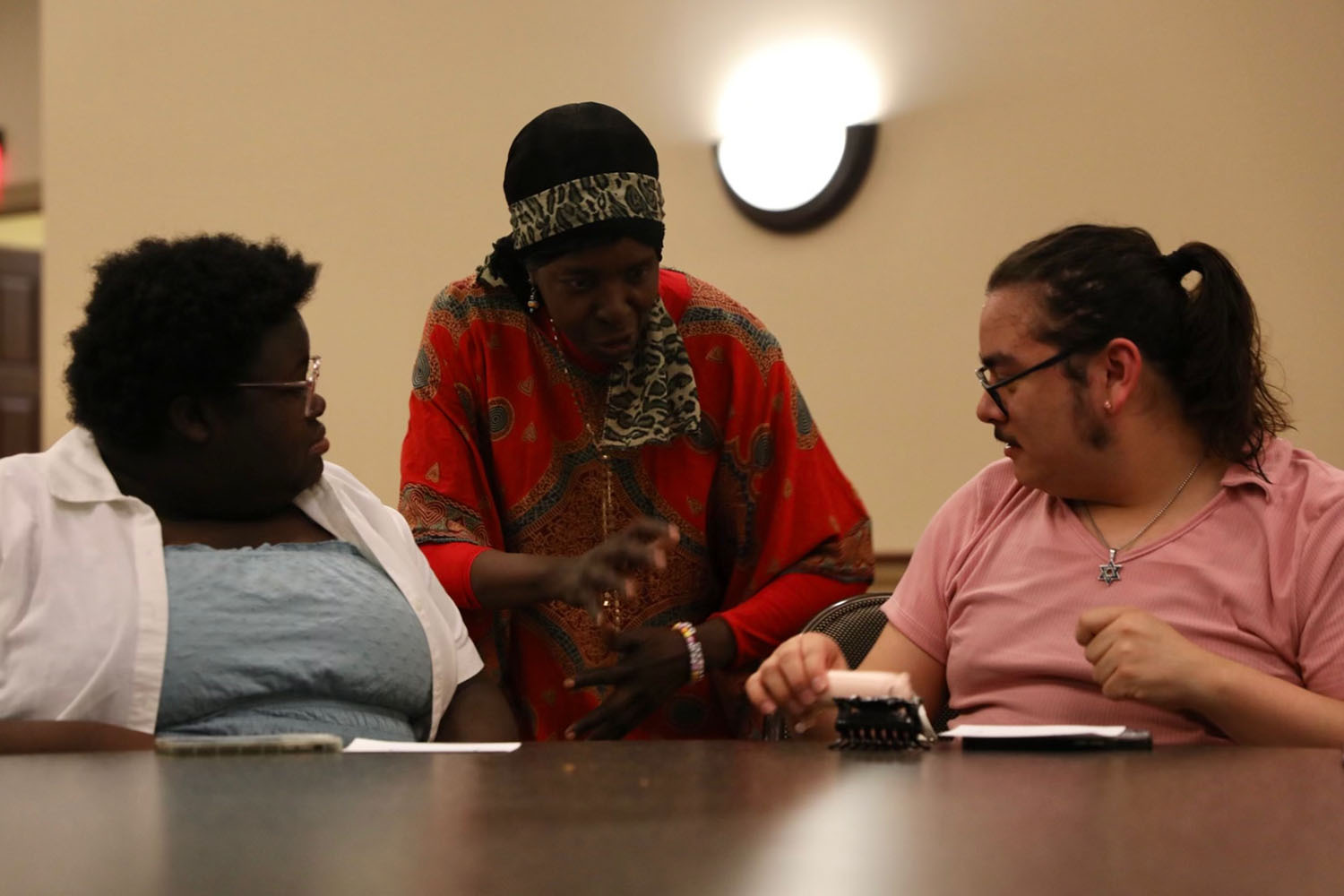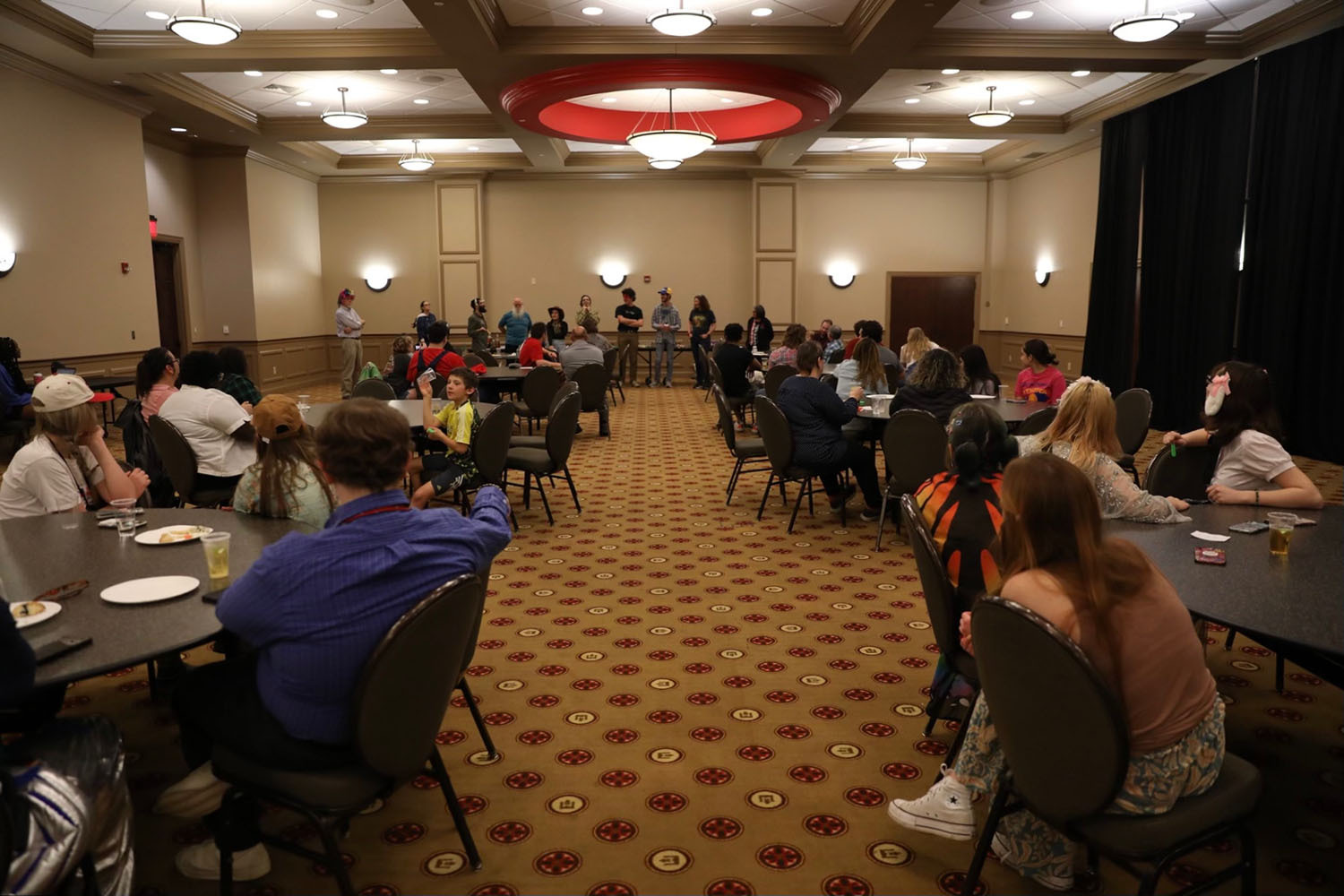Conversations and costumes greeted attendees as they walked into a celebration of Purim on Monday, March 6. Parents, students and children from all corners of Bowling Green gathered in the Martens Alumni Center to eat, drink and read the Megillah, the sacred text detailing Purim’s history, in celebration of the Jewish holiday on WKU’s campus for the first time in decades.
According to Aleph Beta, a nonprofit Torah media company, “The Jewish holiday of Purim (pronounced poo-reem) celebrates a miraculous turn of events in which the Jewish people were saved from a threat of national genocide. It is arguably the most joyous day of the Jewish year.”

Purim recently started to be celebrated on WKU’s campus, with the revival of the Jewish Student Association last semester.
Hilary Katz, an assistant professor of biology, said Purim is a holiday celebrating the continued triumphs of the Jewish people. She said she has memories of Purim fairs, adults celebrating by drinking and synagogue performances of the Megillah.
“It’s really fun. I usually like to celebrate by baking Hamantaschens at home,” Katz said. “I can recruit friends and colleagues to help cut them out and fold them to share, which is a tradition of Purim too.”
According to Chabad.org, the official website for a movement that “promotes Judaism and provides daily Torah lectures”, baking Hamantaschen, reading the Megillah and dressing up in costume are all core traditions of Purim. Hamentaschen, translated to “Haman’s ears,” are pastries named after Haman, the main antagonist in the Megillah.
Ian Roundtree, a sophmore from St. Louis and the president of Jewish Student Association, described the text as a story of the triumph of Esther and the king over Haman, who attempted to wipe out the ancient Jewish population.
According to the Jewish Women’s Archive organization, Queen Esther is the central figure of the book named after her in the Hebrew Bible. She was raised by her uncle and married off to King Ahasuerus, a non-Jewish ruler, who’s advisor was Haman.

The reading of the Megillah is an interactive one, Roundtree said. As Haman’s name is read, loud booing and noisemakers sounded from the crowd. After the reading, he joined the audience in a resounding chant, “Hava narisha, rash, rash, rash!”, meaning, “Wind your noisemakers, ‘rash, rash, rash’” to simulate the interactive reading through song.
He said this triumph is what makes Purim a celebration.
Roundtree said wearing costumes is customary for Purim, and in the past, people would dress up only as characters from the story, but that’s not the case anymore.
“It’s kind of evolved to just you wear what you want, sort of like Jewish Halloween,” Roundtree said.
Like Katz, Roundtree said he has childhood memories of Purim celebrations and community bonding over the years, as he said that Purim is one of few Jewish celebratory holidays, making it imperative to commemorate.
“Purim is a way for me to say to the world, ‘Hey, I am proud to be Jewish. I am proud of myself,’” Roundtree said. “The Megillah teaches me to stand up and fight for myself. We can’t get things done if we don’t stand up for our rights and tell people we exist.”

The nearest synagogue to Bowling Green is an hour away in Nashville, Roundtree said, making WKU’s Jewish Student Association a growing cultural hub for the Bowling Green Jewish community. However, the club faces hurdles in trying to become that point of connection, sophomore Sawyer Griffith said.
Griffith, who is from Crescent Springs, said they have long wanted to convert to Judaism, but wasn’t able to until they arrived in college.
“I’m currently in ‘Jews in Pop Culture and Media,’ and it’s a way for me to continue to learn about it until I can convert,” Griffith said. “I’m here to participate in something that in the near future, I’ll become part of officially.”
However, upon arriving at WKU, Griffith said they didn’t even know about the Jewish Student Association organization and said many Christian organizations got more promotion.
“Events like these are so important because they open the door to learning about other cultures, but you have to know about them first,” Griffith said.
Alexander Marcus, visiting assistant professor of Jewish studies and faculty adviser of Jewish Student Association, said his mission is to help Jewish Student Association expand their outreach.
“It’s especially hard for students to celebrate important holidays for them when non-Jews have never heard of them,” Marcus said. “People have heard of Hanukkah and Passover, but Purim is a pretty big holiday as well; it just doesn’t correspond with the Christian holidays.”

In addition to non-Jewish students not being informed about Jewish holidays, he said there is a lack of institutional support, also making it hard to reach students. He said WKU could do a lot more for the Jewish community here, especially when it comes to funding.
“I’ve been frustrated that there’s not been more commitment. Our money comes from outside the university,” Marcus said.
Attending Jewish events can contribute to a growing population of culturally-aware people and support a community dedicated to each other, according to senior Maja Hrnjic.
Maja Hrnjic is from Sweden and they attended the event in support of Sawyer Griffith, their friend. Hrnjic said the experience was eye-opening and urged students to attend more Jewish events. They said the WKU population must be willing to support this community to foster a sense of inclusion.
“In this world that we currently live in there is a lot of animosity and hatred towards the unknown,“ Hrnjic said. “Have an open mind; it’s not as scary as you think. Almost every religion has the basis to love each other, and it is not something that should be feared.”


